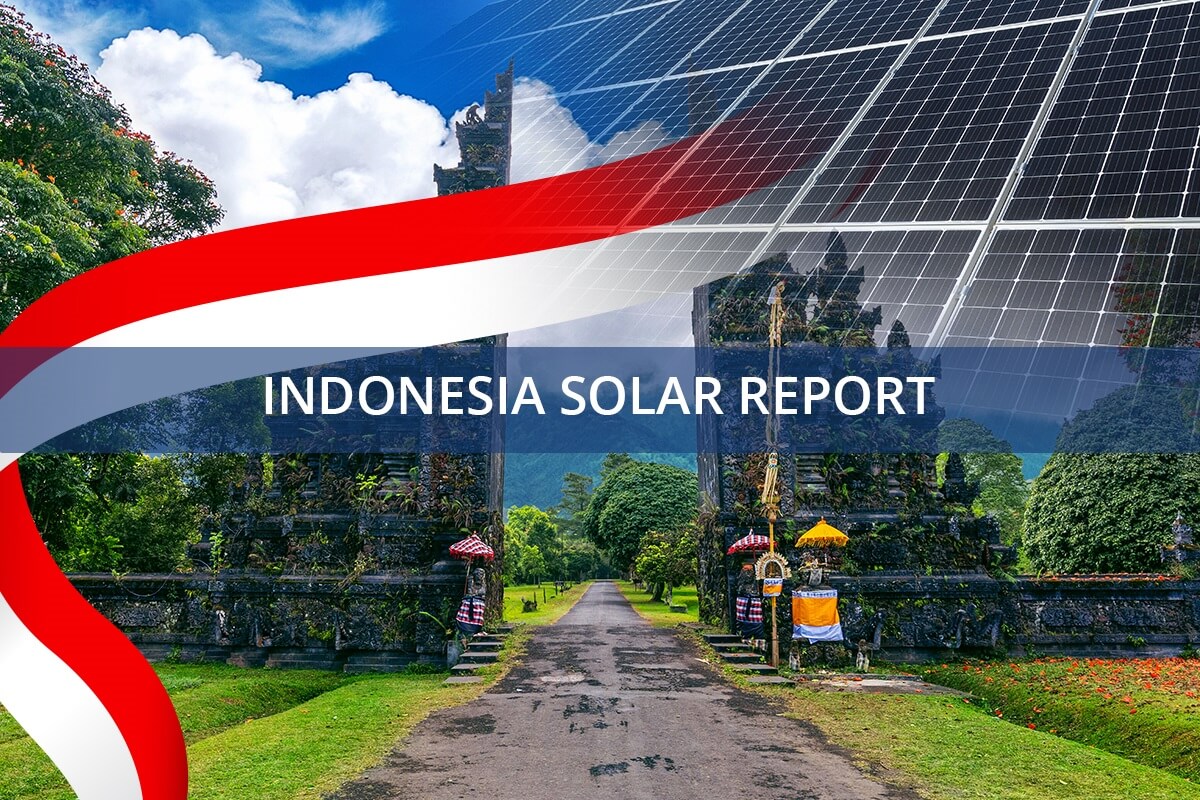By 2034, Indonesia aims to significantly expand its solar power capacity to 17.1 GW, focusing on both large-scale solar power plants and rooftop installations. The government has outlined a plan to build 16.9 GW of large-scale solar facilities and 0.2 GW of rooftop solar installations, aiming to reduce reliance on coal and increase the share of renewable energy in the power generation mix.
Government’s Strategy to Boost Indonesia Solar Power Capacity Through Large-Scale Projects
The government’s strategy prioritizes the development of large-scale solar power plants to achieve its ambitious renewable energy goals. This includes signing power purchase agreements (PPAs) with independent power producers (IPPs) for 6.5 GW of solar capacity, with an additional 10.4 GW planned for development.
A key project in this plan is the innovative 2.7 GW floating solar plant at the Batang Toru hydropower site in North Sumatra, which will be developed in stages. This project, a collaboration between PT PLN (Persero), PT Pembangunan Jaya Ancol Tbk, and Medco Power, will utilize floating solar panels to maximize space efficiency and reduce land use.
The government is also implementing several programs to accelerate the adoption of renewable energy. These include the ‘Renewable Energy: Save and Change’ campaign, which encourages local governments to allocate at least 10% of their budget for renewable energy projects. Additionally, the ‘One Million Solar Panels’ initiative aims to increase the number of rooftop solar installations across the country.
Overcoming Barriers to Expanding Indonesia Solar Power Capacity
Despite the ambitious targets, Indonesia faces several challenges in reaching its solar energy goals. One of the main issues is the country’s reliance on coal-fired power plants, which currently account for a significant portion of the energy mix. To address this, the government is working to diversify its power generation sources and increase the share of renewable energy.
Another challenge is the development of large-scale solar projects, which require significant investment and infrastructure. The government is actively seeking foreign investment to support these projects and has signed agreements with various international partners. Additionally, Indonesia is focusing on electrification programs for remote areas, aiming to provide 100% electricity access by 2024.
To support the expansion of solar energy, the government has also launched the ‘Indonesia Solar Power Initiative’ (ISPI), which provides financial incentives for solar power projects. The Renewable Energy Fund (REF) has been established to finance the development of new solar power plants, and the Solar Power Investment Plan (SPIP) offers tax incentives and subsidies for solar energy projects.
Investment Opportunities Driving Growth in Indonesia Solar Power Capacity
With its abundant natural resources and strategic location, Indonesia is an attractive destination for renewable energy investment. The country has a high potential for solar energy due to its equatorial location, which provides consistent sunlight throughout the year. Additionally, Indonesia benefits from strong government support for renewable energy development, as well as a large and growing domestic market for solar power.
The government has introduced several incentives to encourage investment in the renewable energy sector, including tax holidays, import duty exemptions, and guaranteed power purchase agreements. These measures aim to attract both domestic and foreign investors to participate in the development of Indonesia’s renewable energy infrastructure.
The expansion of solar energy in Indonesia is expected to have significant economic and environmental benefits. By reducing the country’s reliance on fossil fuels, solar power will help mitigate greenhouse gas emissions and contribute to global efforts to combat climate change. Additionally, the development of solar energy projects will create new jobs and stimulate economic growth, particularly in rural and remote areas.
As Indonesia continues to pursue its renewable energy goals, the government is committed to creating a conducive environment for investment and innovation in the solar energy sector. With the right policies and incentives in place, Indonesia is well-positioned to become a major player in the global renewable energy market. For more insights into overcoming renewable energy barriers, explore 5 Critical Challenges Revealed in 2025 Report.

